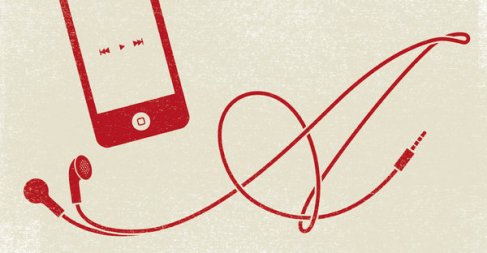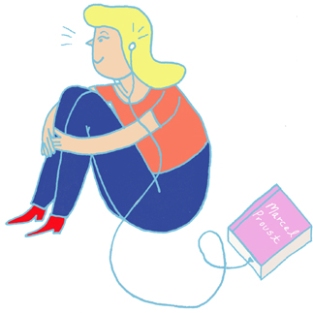Audiobooks are starting to get a bit of respect. Their improved reputation is evident in the increasing amount of press coverage given to them by the New York Times. Here are a few of the most recent audiobook features from that paper:
“Hearing Genuine Voices of Midcentury Fiction” by William Grimes:
This is the story of Calliope Records, a spoken word label founded in the 1960s that’s not as well-known as its contemporaries, Caedmon and Spoken Arts. Calliope offered 15-minute recitations by John Updike, William Styron, James Baldwin, Bernard Malamud, and others. Grimes does a particularly good job at describing these voices: Updike sounds “impossibly youthful and fey,” Malamud speaks with a Brooklyn accent, Jones and Styron have a “muted style,” and Baldwin brings “refined theatricality” to the passages he reads aloud.
“Serious Listening” by John Schwartz:
Schwartz’s defense of audiobooks points out that buying habits are remarkably similar for both readers and listeners. Surprise, surprise, a large number of listeners (23%) choose literary fiction over more easily digestible fare. Schwartz describes his experience of listening to literary titles that pose challenges to the ear: David Mitchell’s Cloud Atlas, Ben Fountain’s Billy Lynn’s Long Halftime Walk, Thomas Pynchon’s Bleeding Edge, and David Foster Wallace’s Infinite Jest
“Funny Talk” by David Carr:
Review of Let’s Explore Diabetes with Owls by David Sedaris, who’s been entertaining listeners of “This American Life” for years with his reminiscences of growing up in North Carolina. Carr calls him “a brilliant audio performer of his own work.”
“An Audible Feast” by Paul Hendrickson:
Simon & Schuster Audio has been releasing the “The Ernest Hemingway Audiobook Library” since 2002. Hendrickson admits to being an audiobook skeptic until hearing such talent as Donald Sutherland, Stacy Keach, William Hurt, and Brian Dennehy take on his beloved writer. Here he is on the sound of Hemingway: “Freed from the page, I could close my eyes and lie on some mental living-room rug and dream my way in all over again.”
“To Hear Her Tell It” by Charles Isherwood:
The Times theater critic gives a rave review to Meryl Streep for her reading of Colm Toibin’s The Testament of Mary. Toibin’s book – which began its life as a dramatic monologue for the Irish stage – is described by Isherwood as the “ideal audiobook.”


